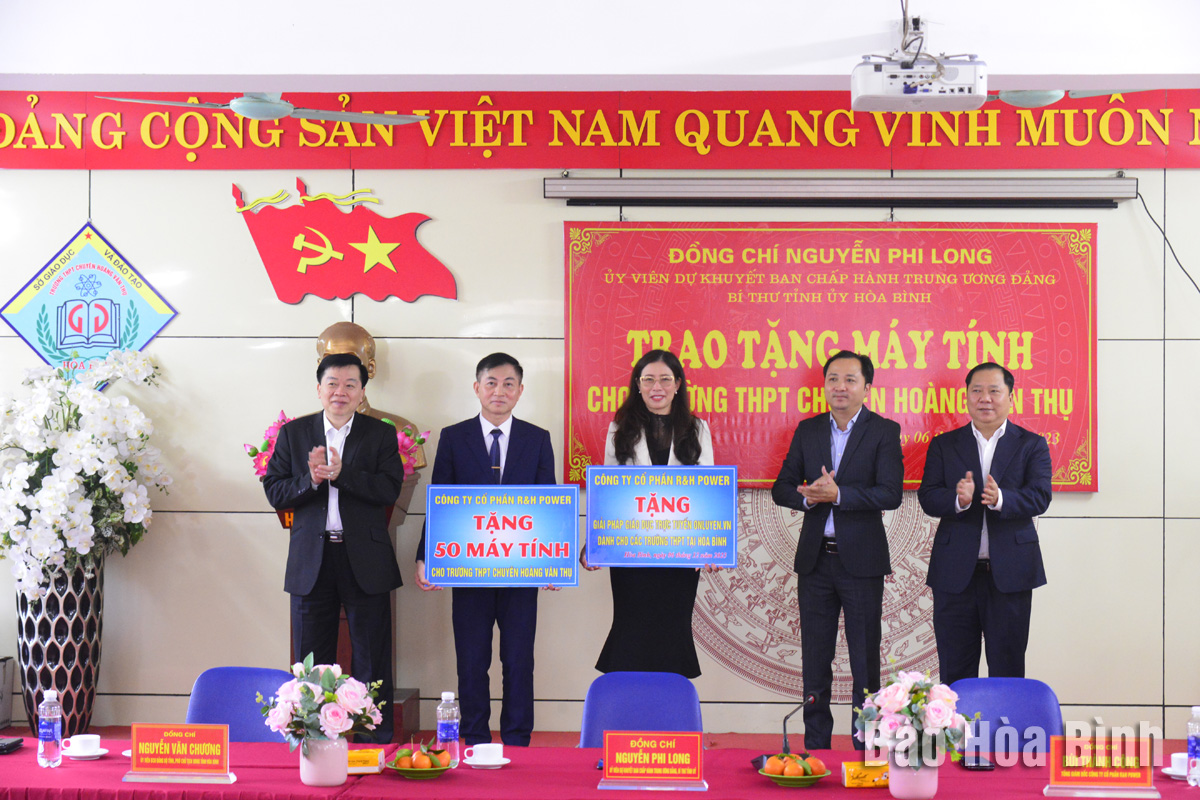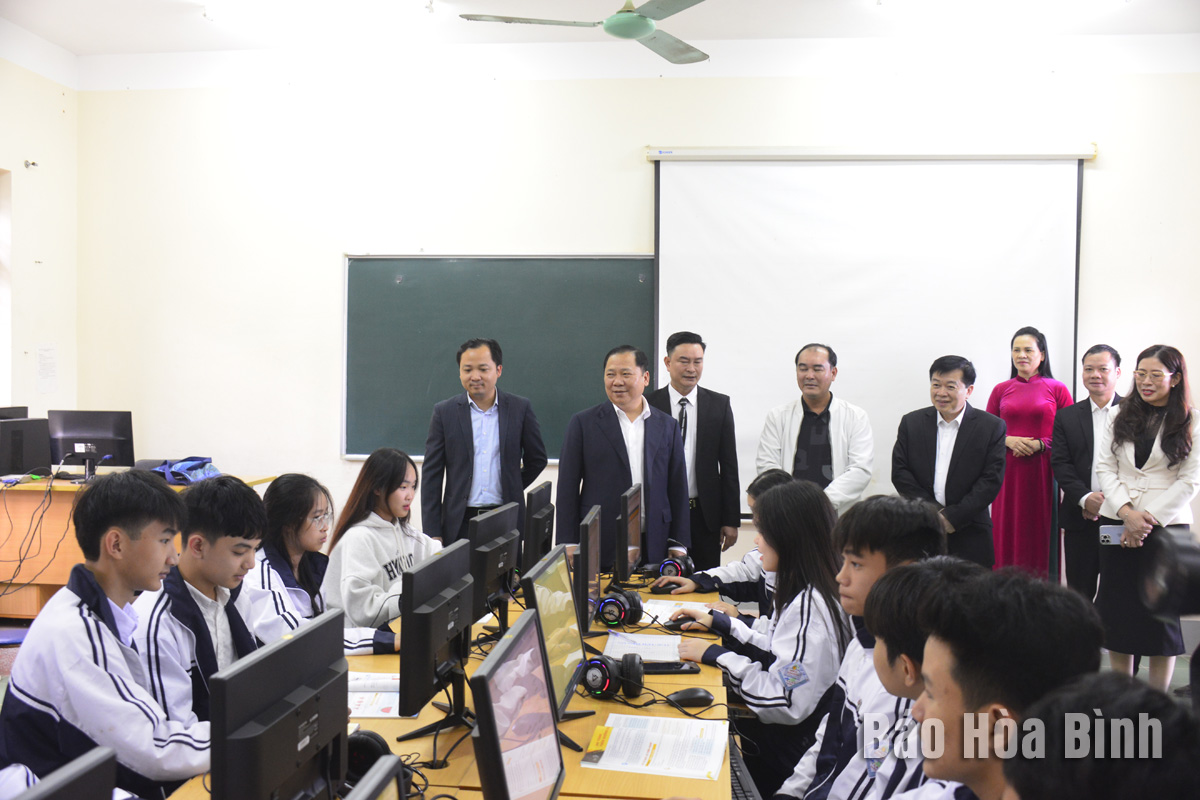
alternate member of the Party Central Committee and Secretary of the provincial Party Committee Nguyen Phi Long has led a delegation to visit and present computers to the Hoang Van Thu High School for the Gifted and the provincial Ethnic Boarding High School. Vice Chairman of the provincial People's Committee Nguyen Van Chuong and representatives from the provincial Department of Education and Training, the provincial Party Committee’s Office, and R&H Power JSC joined the delegation.
alternate member of the Party Central Committee and Secretary
of the provincial Party Committee Nguyen Phi Long and Vice Chairman of the
provincial People’s Committee hand over computers and educational software
solutions to the Hoang Van Thu High School for the Gifted.
alternate member of the Party Central Committee and Secretary of
the provincial Party Committee Nguyen Phi Long and delegates visit an
information technology classroom of the provincial Ethnic Boarding High School.
On the occasion, R&H Power JSC donated 50 computers each to the schools and
the online education software solution "onluyen.vn” to the provincial education
and training sector.
Speaking at the handover ceremony, Long said local authorities always pay
attention to developing education despite many difficulties.
He underlined the necessity to invest in developing infrastructure facilities
for the schools in order to ensure better conditions for teaching and learning
activities and fostering high-quality students in the locality.
He asked the Party civil affairs committeeof the provincial People's
Committee to direct relevant departments and sectors to work harder to improve
the quality of education and training in the locality.
Hoa Binh province is undergoing a dynamic transformation amid Vietnam’s national digital transition. Building on Poliburo’s Resolution No. 57-NQ/TW on breakthroughs in science, technology, innovation, and national digital transformation, the province has rolled out a wide range of practical action plans. A standout initiative is the "Digital Literacy for All” movement, an effort to ensure that no one is left behind in the digital era.
Hoa Binh province is undergoing a dynamic transformation in the wake of the national digital transformation movement. Building on Resolution No. 57-NQ/TW of the Politburo on breakthroughs in science, technology, innovation, and national digital transformation, the province has implemented a wide range of practical action plans. A standout initiative is the "Digital Literacy for All” movement ambitious effort to ensure that no one is left behind in the digital age.
With a spirit of unity and proactive problem-solving, the Party Committee, the government and the people of Dong Lai Commune (Tan Lac District) have made great strides in implementing the resolutions of the 24th Party Congress of the commune for the 2020 - 2025 term. Focusing on leadership and practical actions, the commune has brought the Party’s resolutions into daily life, creating strong impacts and pushing the local development forward.
Amid the nationwide push for digital transformation, young people in Hoa Binh Province are stepping up as dynamic pioneers, applying technology to enhance Youth Union operations and expand the reach of youth-led initiatives. Through creativity and adaptability, Youth Union organizations at all levels have introduced a series of practical solutions, contributing to modern governance and community development.
In recent years, An Nghia commune, located in Lac Son district, has stepped up administrative reform, focusing on improving the quality and efficiency of its single-window service unit for receiving and processing administrative procedures. These improvements have helped create favourable conditions for local residents and organisations to handle administrative procedures, contributing to the commune’s broader socio-economic development.
The Prime Minister-approved master plan to develop the multi-use value of forests ecosystems through 2030, with a vision to 2050, aims to improve the management and sustainable use of forest resources, create jobs, increase incomes, and improve the living standards of ethnic minorities, people in mountainous and remote areas, forest workers and those living near forests.




